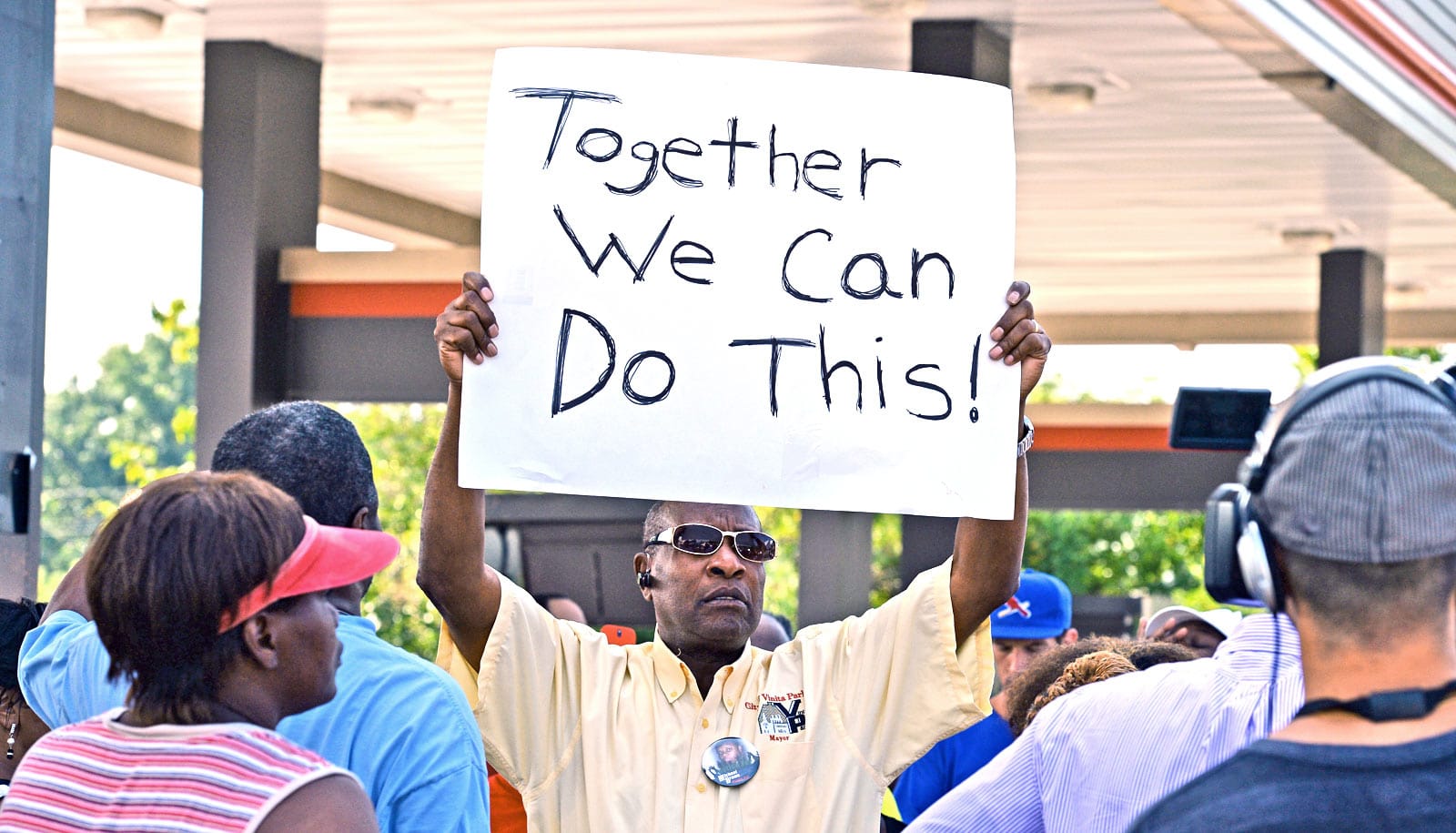When a white police officer in Ferguson, Missouri, shot Michael Brown, Jr., in August 2014, civil unrest lasted for weeks.
The aftershocks continue, including for older people in the community who say issues relating to safety remains their highest concern, a new study finds.
“Safety was a very interesting topic because people talked about it in various ways,” says gerontologist Nancy Morrow-Howell, a professor of social policy at Washington University in St. Louis and director of the Harvey A. Friedman Center for Aging.
“Feeling unsafe if stopped by police, feeling unsafe because the police may not intervene, feeling unsafe after dark on the streets in the aftermath of the protests, feeling unsafe in loud community meetings.”
The aim of the study, published in the Journal of Gerontological Social Work, was to learn how older adults experienced the social unrest. Ten focus groups were conducted with 73 participants ranging in age from 64 to 93 years old. The average age was 75. Nearly 6 of 10 were African American.
Eight themes were identified, but issues related to safety were most commonly discussed. Participants reported a breakdown in intergenerational communications and expressed a desire for more exchange.
Ferguson protesters say police see black people as ‘thugs’
“I imagine that, in general, younger people felt the same way. Perhaps one difference is that the older adults felt more vulnerable during the protests. For example, some felt like they needed to leave the protests at nightfall because they could not run or protect themselves if needed.”
“I was surprised to learn that these older adults, many who participated in the civil rights movement, felt unappreciated by younger folks.
“They felt like their knowledge and experience were not valued. They really wanted to somehow support the younger generation but didn’t know how.”



